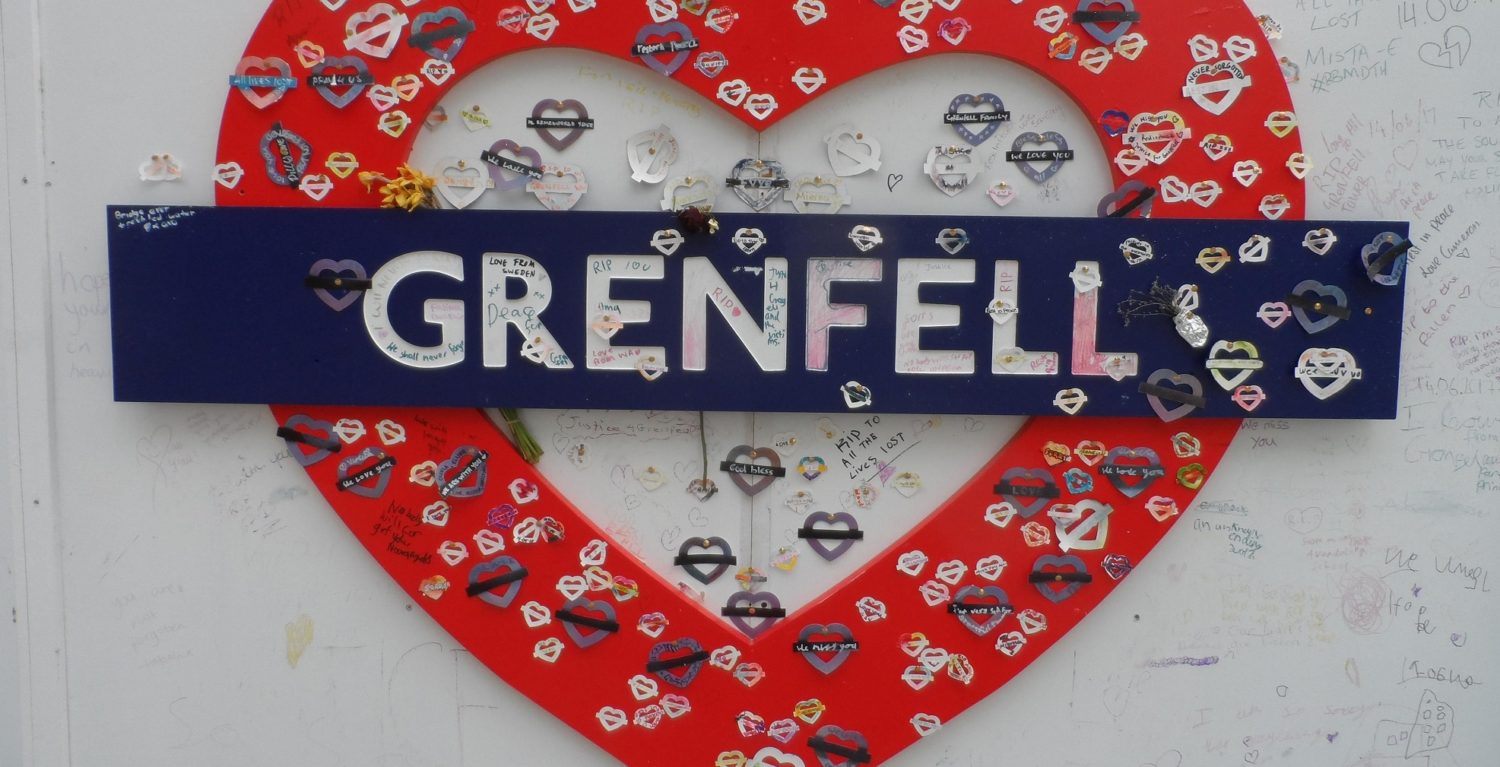Grenfell: a national crisis
Today’s report on phase one of the Grenfell inquiry fails to hold the government and the very top of the fire service’s governing structures to account. It was not the fault of the firefighters who gave their all to save every life they could, writes Matt Wrack, general secretary of the Fire Brigades Union.
In the two years since the Grenfell Tower tragedy, we have heard harrowing accounts of human suffering and amazing feats of heroism from survivors and firefighters. The lengthy public inquiry has scrutinised what happened that night and the actions of the firefighters who gave their all to save others. We have now, finally, reached the point of publication for the report into the first phase of the inquiry, and firefighters are in the spotlight once again.
My union, the Fire Brigades Union (FBU), has stood with our members throughout this traumatic experience. Over 600 firefighters and emergency control room staff were interviewed by police as part of the inquiry, with 88 giving oral evidence and a further 262 statements read into the record. Each and every one of them acted with bravery at Grenfell when facing an insurmountable challenge.
The firefighters who risked their lives running into Grenfell Tower are not to blame for the events of that night. They did not wrap the building in flammable cladding. They did not fit it with faulty fire doors and smoke extractors. They did not build a single-staircase in a densely-populated building and break the fire lift. Every building safety fundamental was undermined at Grenfell; a scenario that firefighters were not and are still not trained for.
Much of the public discourse about Grenfell has focused on the “stay put” advice issued to residents. Residential buildings are built with each flat as a compartment that can contain a fire for long enough to be combatted, protecting residents in other flats. This safety procedure, known as compartmentation, has been highly successful in numerous other high-rise fires. In buildings with a single staircase, where mass evacuation could cause a stampede, this principal has saved lives countless times.
At Grenfell, where fire spread along flammable cladding at an unprecedented rate, “compartmentation” clearly failed. But there was no “plan B”; no procedure for when “stay put advice” did not work. Firefighters faced a situation which no one had planned or prepared for and therefore the principals on which they are trained did not apply. Over two years on, very little has changed.
In the aftermath of the fire, the FBU called for a national review of evacuation procedures; a call that was ignored by government. It has taken two years, but the London Fire Brigade (LFB) have voiced their support for a review, and we hope other brigades will join them. However, “stay put” guidance remains in place across the country, with no national procedure for what to do when it fails.
That, of course, leaves serious questions for the senior governance of the LFB and for politicians in local and national government who allowed firefighters to be put in an impossible position. Fire safety policy has been neglected for decades, deemed too costly and burdensome by successive governments hell-bent on deregulation and, all too often, aided by chief fire officers in London and elsewhere.
Margaret Thatcher’s government slashed building safety regulations from over 300 pages to just 25; John Major’s government privatised the Building Research Establishment, undermining its role as an independent adviser on fire safety; David Cameron’s “one in, two out” policy slashed regulations further, resulting in the repeal of various local building acts’ fire safety measures, while Eric Pickles, as communities secretary, ignored warnings about “stay put”.
Crucially, in 2004 the New Labour government abolished the Central Fire Brigades Advisory Council (CFBAC), the national body responsible for scrutinising fire safety in the UK. In its absence, there has been no independent national body to scrutinise and develop fire safety policy.
It seems self-evident that, in the wake of a disaster like Grenfell, there be a body with the authority to address issues affecting every fire and rescue services in the country. But the abolition of the CFBAC left the UK without an inclusive and accountable body that can provide this role. Government now looks to the National Fire Chiefs Council to speak for the fire and rescue service, a body comprised of the same fire chiefs that ignored warning after warning from previous fires.
From the start of this inquiry, the FBU has warned that it is structured the wrong way. Of course we need an account of exactly what happened that night – the bereaved, survivors and residents have an absolute right to know what happened to their loved ones and to ask difficult questions of all those involved. But, by prioritising scrutiny of the actions solely of firefighters, the inquiry has so far ignored the larger structural issues which led to the fire; the decades of deregulation and privatisation that gutted fire safety and left residents and firefighters exposed.
The Grenfell community are right to seek out the culprits who allowed 72 people to die that night, but that was not the firefighters who gave their all to save every life they could. The blame sits at the heart of government and the very top of the fire service’s governing structures.
There are buildings like Grenfell throughout the country, in areas where fire and rescue services are far less prepared than in London, and still we have yet to see concrete action to tackle that risk. This is a national crisis that needs national policy and solutions; vilifying individual firefighters who could only work within their training will solve nothing.
Photo credit: Wikimedia

